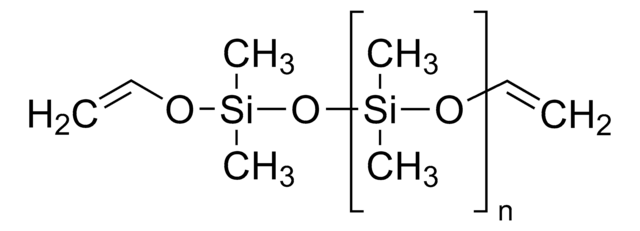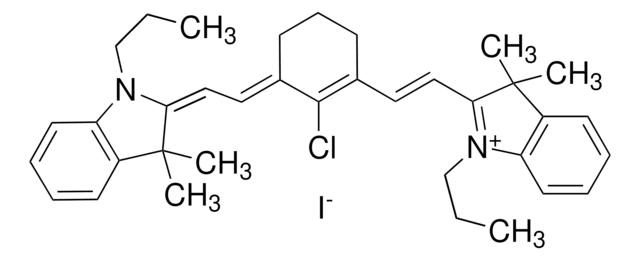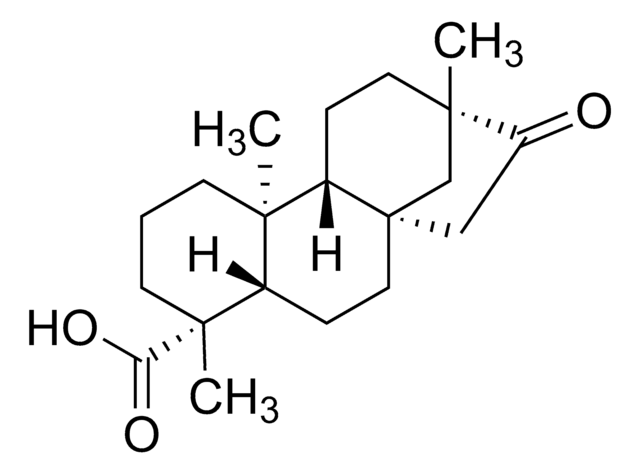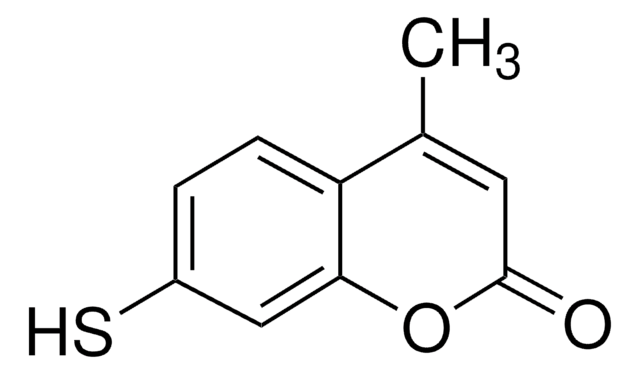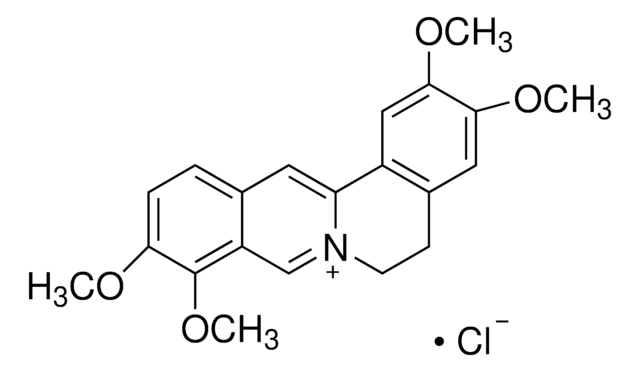All Photos(1)
About This Item
Empirical Formula (Hill Notation):
C32H37N5O5
Molecular Weight:
571.67
UNSPSC Code:
12352200
NACRES:
NA.32
Recommended Products
Assay
≥95% (HPLC)
form
lyophilized
composition
Peptide Content, ≥80%
storage condition
protect from light
storage temp.
−20°C
Amino Acid Sequence
Tyr-Pro-Phe-Phe-NH2
Application
Endomorphin-1 (Tyr-Pro-Trp-Phe-NH2, YPWF-NH2) and endomorphin-2 (Tyr-Pro-Phe-Phe-NH2, YPFF-NH2) are endogeneous opioid tetrapeptides with high affinity and specificity for the μ (mu) opioid receptor. Endomorphin-1 and 2 may be used to study the differential action and metabolism of these opioids.
Storage Class Code
11 - Combustible Solids
WGK
WGK 3
Flash Point(F)
Not applicable
Flash Point(C)
Not applicable
Choose from one of the most recent versions:
Certificates of Analysis (COA)
Lot/Batch Number
Don't see the Right Version?
If you require a particular version, you can look up a specific certificate by the Lot or Batch number.
Already Own This Product?
Find documentation for the products that you have recently purchased in the Document Library.
Yoshio Okada et al.
Vitamins and hormones, 65, 257-279 (2002-12-17)
Opioid peptides and their G-protein-coupled receptors (delta, kappa, mu) are located in the central nervous system and peripheral tissues. The opioid system has been studied to determine the intrinsic mechanism of modulation of pain and to develop uniquely effective pain-control
Jakub Fichna et al.
Pharmacological reviews, 59(1), 88-123 (2007-03-03)
Endomorphin-1 (Tyr-Pro-Trp-Phe-NH2) and endomorphin-2 (Tyr-Pro-Phe-Phe-NH2) are two endogenous opioid peptides with high affinity and remarkable selectivity for the mu-opioid receptor. The neuroanatomical distribution of endomorphins reflects their potential endogenous role in many major physiological processes, which include perception of pain
Anna Janecka et al.
Peptides, 29(11), 2066-2073 (2008-08-23)
Centrally acting plant opiates, such as morphine, are the most frequently used analgesics for the relief of severe pain, even though their undesired side effects are serious limitation to their usefulness. The search for new therapeutics that could replace morphine
Javier Burgueño et al.
Scientific reports, 7(1), 15389-15389 (2017-11-15)
Compelling data in the literature from the recent years leave no doubt about the pluridimensional nature of G protein-coupled receptor function and the fact that some ligands can couple with different efficacies to the multiple pathways that a receptor can
Megumi Shimoyama et al.
Pharmacology, 89(3-4), 145-148 (2012-03-15)
Multiple opioid receptor (OR) types and endogenous opioid peptides exist in the spinal dorsal horn and there may be interactions among these receptor types that involve opioid peptides. In a previous study we observed that antinociceptive effects of the selective
Our team of scientists has experience in all areas of research including Life Science, Material Science, Chemical Synthesis, Chromatography, Analytical and many others.
Contact Technical Service

